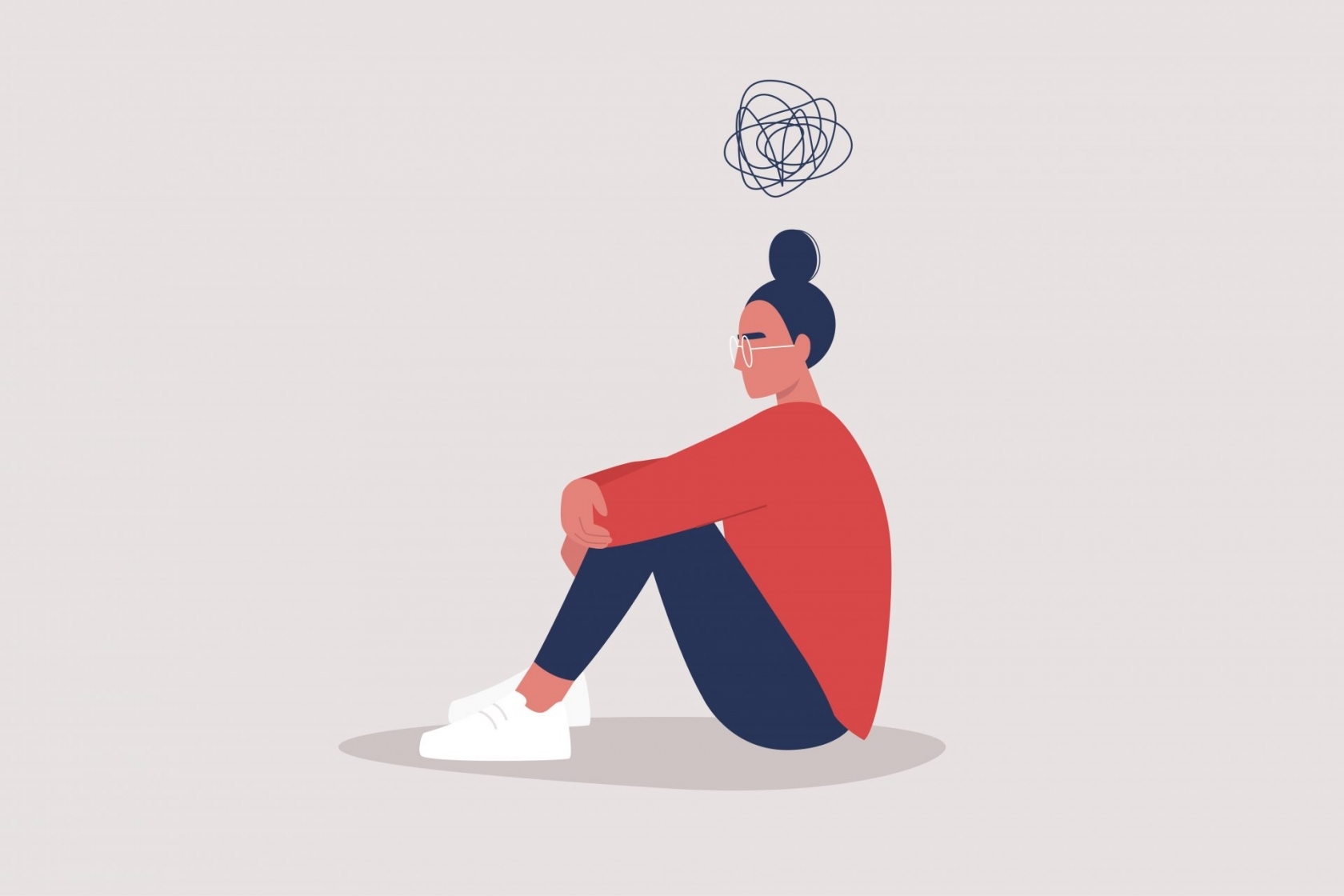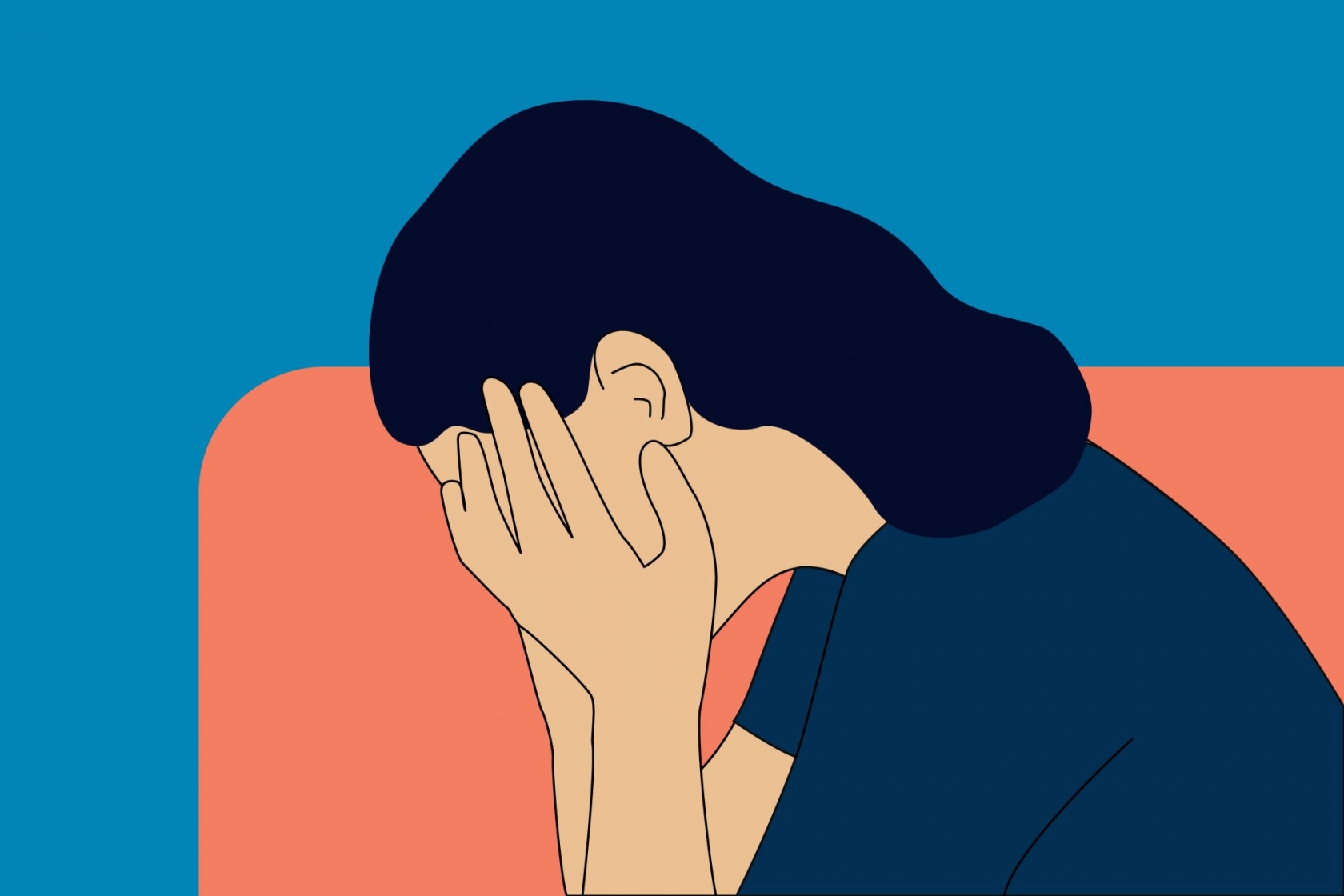From a loss of libido to a change in appetite, we asked an expert to explain the science behind the lesser-known symptoms of depression.
Although the conversation about depression has come a long way over the last couple of years, there’s still a lack of understanding when it comes to what the mental health condition actually looks like.
Despite the amount of emphasis we place on labels when it comes to our mental health, depression, like many mental health conditions, is not a ‘one size fits all’ kind of deal.
Instead, each experience of depression is unique – while some people might find that their depression causes them to eat more and sleep longer, others may experience a complete loss of appetite and disturbed sleep.
Because of this, it’s important that we continue to talk about how depression affects people and amplify the experiences of those dealing with the condition. This is especially true when it comes to the lesser-known symptoms that people don’t really talk about.
Indeed, according to a new survey of 2000 adults by the mental health care provider the Priory Group, less than half of us are aware that common symptoms including a low libido, a change in our menstrual cycle or moving or speaking more slowly than usual are all potential signs of depression.
As Dr Syed Omair Ahmed, a consultant psychiatrist at the Priory Group, explains: “All individuals are different. When someone has depression, their different biological, psychological and social makeup affects the symptoms that they experience.
“When a person is aware of the different symptoms of depression, it puts them in a better position to access treatment faster. When depression is left untreated, a person’s symptoms can worsen, and significant health issues can arise.”

In this way, being able to understand – and recognise – the lesser-known symptoms of depression is crucial in ensuring that we’re able to help those around us to recognise if and when they might need help, especially at a time when so many more people are dealing with depression as a result of lockdown. This kind of understanding is also crucial in destigmatising the experience of people dealing with the mental health condition on an everyday basis.
With this in mind, we asked Dr Ahmed to explain the science behind the symptoms of depression which no one really talks about. Here’s what he had to say.
1. Difficulty making decisions
“Depression can cause certain areas of the brain to decrease in volume and can also disrupt normal ‘electrical connections’,” Dr Ahmed explains. “This causes a person’s focus and concentration to diminish, making it difficult for them to make decisions.
He continues: “Depression also leads to sleep disruption and lethargy. This lack of energy can affect a person’s decision-making abilities.”
2. Changes in appetite or weight
“Depression can cause changes in our metabolic systems, leading to an increased or decreased appetite,” Dr Ahmed explains.
“When a person has lower energy levels, they may also be less motivated to prepare food. Conversely, some people may ‘comfort’ eat as a coping mechanism.”

3. Having difficulties in your home, work or family life
“The loss of sleep often caused by depression can result in a person becoming irritable, which can impact on those they are close to,” Dr Ahmed points out. “A person may also withdraw from others, which can affect relationships.
“Problems with focus and concentration may also cause work performance to decline, and lead to a demotion or job loss.”
He continues: “If a person resorts to self-medicating with alcohol or drugs, this can again exacerbate difficulties at home, work or within the family.”
4. Low sex drive
“People with depression can experience a loss of desire and can experience delayed orgasm,” Dr Ahmed says.
“A person’s sexual arousal depends on their ability to experience pleasure – if this is missing due to depression, this will lower their sex drive. Low energy levels and low self-esteem can also contribute.”
5. Feeling guilt-ridden
“People with depression may struggle to achieve perspective on negative life events,” Dr Ahmed explains. “This can make them feel wholly responsible for them, making them feel guilty.”
6. Moving or speaking more slowly than usual
“The slowing of both thought processes and physical movements is a well-established symptom of severe depression,” Dr Ahmed says.
“Partly due to decreased energy levels, it is also known that certain chemical and structural changes in the brain can cause this.”

7. Unexplained aches or pains
“People with depression often present with various body ailments including pain,” Dr Ahmed explains. “While quite often there will be no underlying physical cause, the pain and distress is very real.”
He adds: “In depression, as emotions are not processed properly, people tend to focus on any physical symptoms they experience rather than underlying emotional problems.”
8. Changes to your menstrual cycle
“During a depressive phase, the stress hormone called cortisol rises,” Dr Ahmed says. “This sends messages to the brain and the reproductive system, delaying or ceasing ovulation, leading to a delayed or absent period.”
9. Constipation
“If a person’s appetite is adversely affected, and their dietary intake is quite poor, they will lack essential nutrients and fibre. This can lead to bowel disturbances including constipation,” Dr Ahmed explains.
“Low fluid intake can also worsen constipation, and low serotonin levels in depression have also been shown to slow gut movements.”
Coping with depression
If you’re struggling with depression right now, it’s important to remember that you’re not alone, and that there are places and people who are able to help.
If you’re looking to read more articles about depression, here’s three to get you started:
- The main symptom of depression outsiders often struggle to understand
- 4 women share their experiences of dealing with depression in lockdown
- What does it mean to have ‘high functioning’ depression?
And for more information on depression, including what it is, how to cope and when and where to seek help, you can check out NHS Every Mind Matters or visit the Mind website.
For confidential support you can also call the Samaritans in the UK on 116 123 or email [email protected].
Images: Getty
Source: Read Full Article
